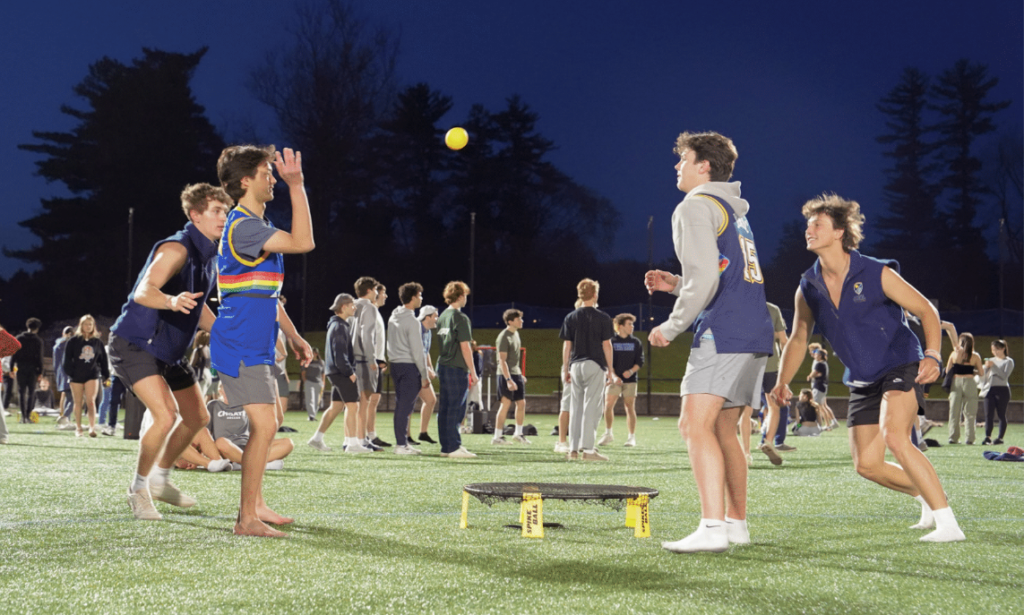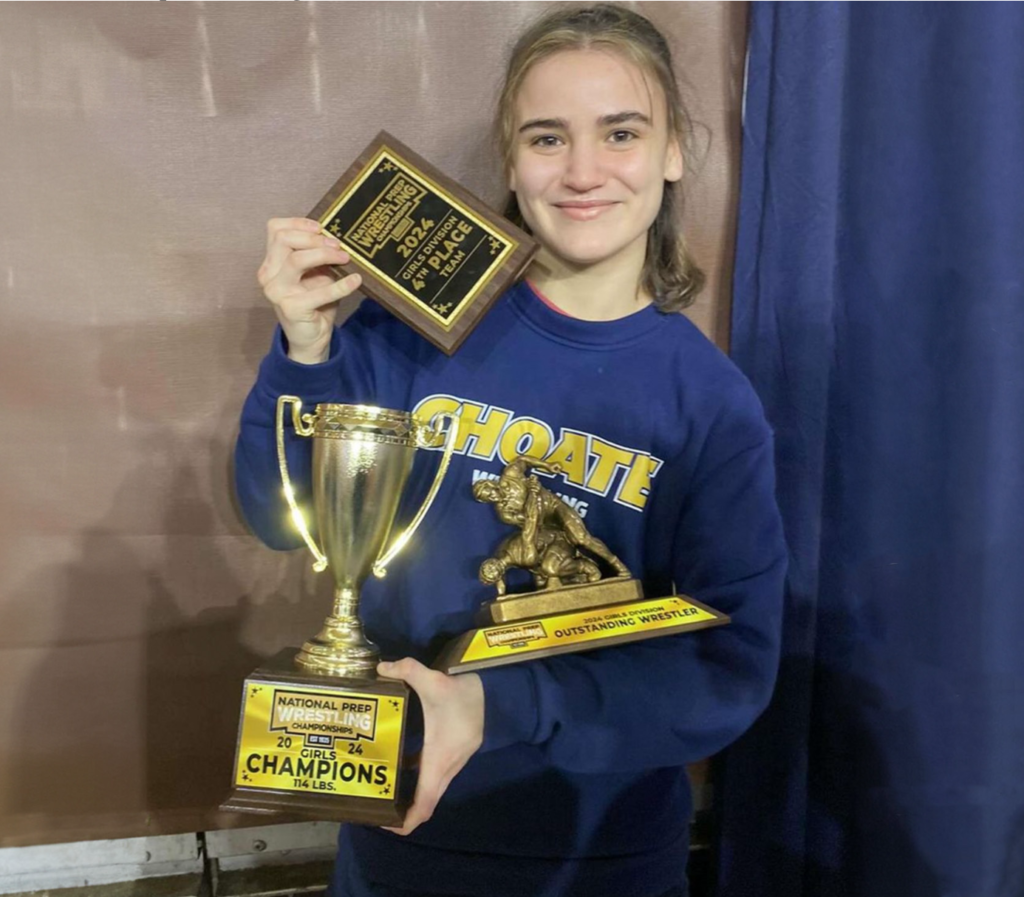Many students at Choate apply to colleges and wait for their acceptances to decide where to spend the next four years of their lives. However, student-athletes who want to continue their sport at the collegiate level undergo a complex athletic recruiting process before deciding on a college.
The recruiting cycle for colleges greatly varies depending on the sport. For instance, soccer and lacrosse both have extremely early timelines, but sports like basketball or football traditionally have later timelines. Associate Director of Athletics and Head Coach of Boys’ Varsity Hockey Mr. Pat Dennehy said, “Some kids will make verbal commitments in the 9th grade, and others won’t know where they are going until even after high school.”
Also, because of the wide array of sports offered at the collegiate level, the recruiting process for each individual sport is different. Sports that have specific time statistics, like swimming, cross country, and crew, are easier to evaluate for college coaching staffs. Larger team sports like soccer or lacrosse are harder to evaluate. Mr. Dennehy said, “With sports like swimming, track, cross country, those timed sports, that is helpful. You can immediately send your 100 free time, and colleges can immediately know where you stand compared to other kids.”
Communication between student-athletes and their coaches plays a key role in the athletic recruiting process. When asked about the role high school coaches play in the college recruiting process, Mr. Dennehy said, “I’ll tell my guys to cast a wide net, and send an email out to these coaches introducing yourself and maybe including GPA.” He continued, “I’ll send an email right after they send it to the coach, and say my player has written to you and I would love to talk to you more about him when you have time.” Mr. Dennehy also said that some coaches are better than others about responding to emails, but it is important to start the conversation.
Many student-athletes have high hopes of playing for a school with Division I sports, but obviously not all have the ability to play on these teams. Mr. Dennehy said, “The key for us, though, is that we have to be honest, and that starts with trying to be honest with the player, too. I think the hardest part about the recruiting process is when a school says that they like a kid but that they aren’t interested. It’s tough to communicate that to the player.”
In addition to the student-athletes’ abilities, colleges often seek information from high-school coaches about the student-athlete’s character and other intangible qualities. Mr. Dennehy explained, “A college coach can come in and see the player, but then they want to know what the work ethic is like and if they are a good teammate. The athlete might be a good player, but they want to know if the athlete can support the players around them.”
While athletic talent plays a role in college athletic recruiting, student-athletes’ grades and test scores are incredibly important as well. Student-athletes can certainly improve their prospects of playing college sports by improving their grades and standardized test scores. On this topic, Mr. Dennehy stated, “The bottom line is the better student you are, and the better scores you get, the easier it is for you to be on the team.”
Many student-athletes at Choate use technology to showcase their talents by creating highlight tapes. Many sports at Choate such as hockey, football, and lacrosse use a sports video software called Hudl. Student-athletes can make their own highlight reels to send to schools, which helps if college coaches can not travel to Choate.
Choate student-athletes can also receive exposure from college coaches by participating in tournaments and other athletic events outside of Choate during the summer. This gives college coaches another opportunity to evaluate the student-athletes. Additionally, some colleges hold prospect camps where players of a specific sport can play directly in front of college coaches.
Emily Clorite ’18 experienced an unusual recruiting process. She is committed to Yale to play both soccer and lacrosse next year. During her college recruiting process, she looked for schools where she had the opportunity to play both sports, which reduced some of her choices. Clorite said, “My recruiting process was a bit unique because I was looking to play both soccer and lacrosse in college. At certain schools I would only talk to the lacrosse coach and have to try to walk onto the other team.” She added, “The hardest part was finding a school where I liked both coaches. For a bunch of schools, I really loved one of the coaches, but did not get along with the other one.”
Clorite started the recruiting process somewhat stressed about having to commit to a school by a certain date, but she realized that she could take her time in looking at each college. “It was very stressful until I realized it didn’t need to be stressful at all. It ended up being a really fun experience because I got to meet coaches from all over the country and visit a ton of amazing schools.”
Although deciding to play college sports can be a difficult decision, student-athletes at Choate have the resources and support to make the decision that will allow them to succeed at the collegiate level.




